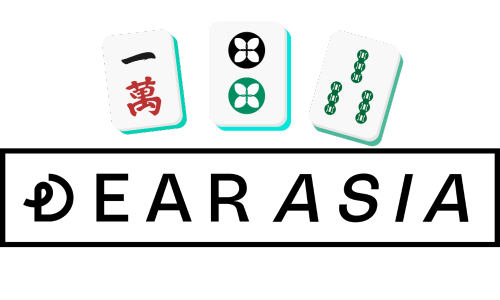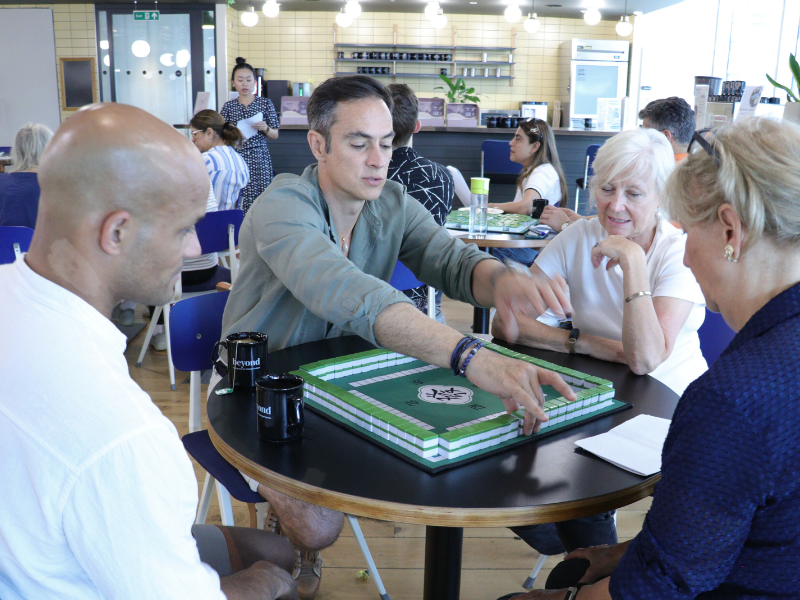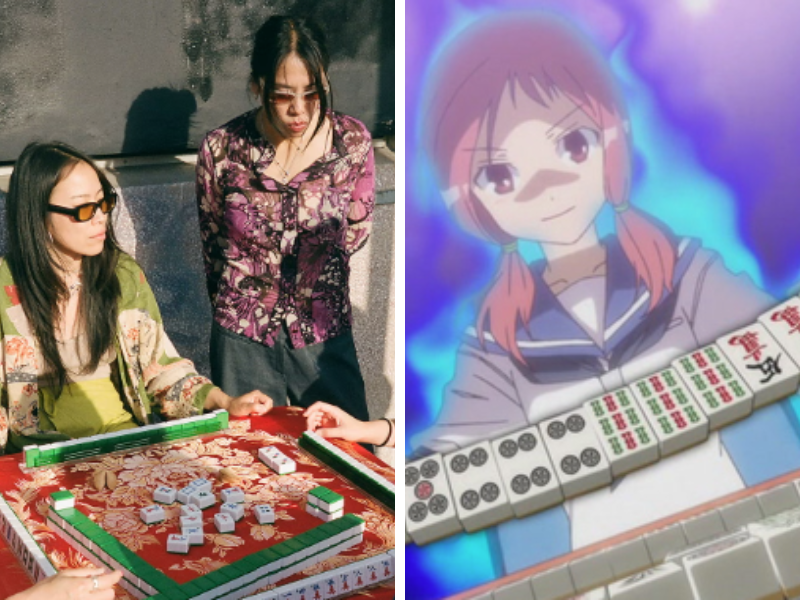Why Mahjong Solitaire Isn’t Real Mahjong — And Why You’ll Love the Real Thing
If you’re an English speaker, there’s a good chance your first encounter with “Mahjong” was on a computer screen — matching colourful tiles in pairs until the board cleared. It was addictive, relaxing, and a little bit like a digital jigsaw puzzle. Fun? Absolutely. But here’s the truth: that game isn’t Mahjong.
It’s called Mahjong Solitaire, and aside from the tiles it borrows, it has almost nothing to do with the real Mahjong game that millions of people across Asia have played for over a century. The actual Mahjong is a lively, fast-paced, four-player game full of strategy, suspense, and social interaction. Once you’ve played the real thing, you’ll understand why it’s been a cultural staple for generations — and why a few minutes at a Mahjong table beats hours on a computer screen.
From the Tea House to the Living Room — The Origins of Mahjong
Mahjong’s roots stretch back to late Qing dynasty China in the 19th century. Although its exact origin story is debated, most historians agree it evolved from older Chinese card games, swapping paper cards for small engraved tiles. By the early 20th century, Mahjong was sweeping across Chinese cities, played in tea houses, parks, and family homes.
What made it so popular wasn’t just the game itself — it was the experience. Mahjong brought people together. Friends and family gathered around a square table, built “walls” of tiles, and tried to outwit each other while sipping tea and sharing snacks.
As Chinese communities migrated, they brought the game with them. Different regions adapted the rules:
- Hong Kong-style Mahjong became known for its straightforward scoring and fast pace.
- Japanese Riichi Mahjong introduced betting elements and elaborate winning hands.
- Taiwanese Mahjong added more tiles for bigger hands and complex strategies.
- Chinese Official rules emerged as the standardised competitive form.
Despite these variations, the essence of Mahjong remained: a game of skill, memory, and social connection.
Mahjong Solitaire The Impostor with the Right Tiles
So where did Mahjong Solitaire come from? In the 1980s, computer programmers adapted Mahjong tiles into a single-player matching puzzle for early PCs. The rules were simple: match pairs of identical tiles to remove them from the board. No drawing, no discarding, no strategy involving other players — just you, the tiles, and the clock.
It was a hit. Windows bundled it with its software, and soon millions of people worldwide were “playing Mahjong” without realising it wasn’t the real mahjong. The confusion stuck, especially in Western countries where traditional Mahjong wasn’t widely played.
While Mahjong Solitaire can be a relaxing pastime, it’s a completely different experience. If Mahjong Solitaire is like doing a crossword, real Mahjong is like playing poker — but with tiles instead of cards.
The Real Mahjong Experience
Imagine this: four players sit around a square table. Each one shuffles thick, smooth tiles until they clack against each other in a satisfying chorus. Everyone builds a “wall” of tiles in front of them. The dealer starts by drawing and discarding tiles, and the game is on.
Your goal? Assemble a winning hand before anyone else does — by drawing tiles from the wall, claiming discards, and watching your opponents’ every move.
The atmosphere changes as the game unfolds. Players lean in, eyes scanning the table. Someone discards a tile you’ve been waiting for, and your heart skips — do you claim it now or hold back? Every decision matters. You’re not just playing your own hand; you’re reading your opponents, predicting their moves, and blocking their paths.
It’s part skill, part memory, part psychology — and yes, a dash of luck.
And then there’s the social side. Real Mahjong is full of laughter, groans, and playful banter. It’s the clink of tea cups, the thump of a winning hand hitting the table, the collective gasp when someone snatches victory from the brink.
#mahjong_dearasia
We know learning Mahjong on your own is hard—and not very fun. Dear Asia is the Mahjong school you’ve been looking for. Based in London, book tickets for our regular Saturday workshops below or hire our private Mahjong instructors.

Mahjong Styles and Variations
Once you start playing real Mahjong, you’ll discover that there’s no single “correct” version — and that’s part of the fun.
- Hong Kong Mahjong: Popular across Southern China and among overseas Chinese communities. Fast-paced, straightforward, and a great entry point for beginners.
- Japanese Riichi Mahjong: Adds a layer of betting and “calling Riichi” for extra points, along with unique winning hands. It’s big on drama and strategy.
- Taiwanese Mahjong: Played with 16 tiles instead of 14, allowing for larger, more complex hands. Perfect for players who love strategy.
- Chinese Official (CO) Mahjong: The official tournament style in mainland China, with strict scoring and emphasis on specific hand patterns.
The good news? If you learn one style well, picking up others is much easier — the core mechanics remain the same.
Why playing real Mahjong Beats Apps
Mahjong Solitaire might be fun for killing time, but it’s a completely different world from playing real Mahjong in person. Solitaire is a solo tile-matching puzzle which requires no strategy, no opponents, no table talk. In a real game, you’re not just matching tiles; you’re building hands, reading your opponents, bluffing, and adapting your strategy with every draw. The social energy, the laughter, the tension when someone is one tile away from winning, you can’t get any of that from a screen. If you’ve only ever played Mahjong Solitaire, you’re missing the heart of the game.
When you play in person, you get:
- Tactile learning — handling the tiles makes the rules stick in your mind.
- Instant feedback — experienced players can explain moves as they happen.
- Social motivation — it’s more fun to keep playing when you’re laughing with others.
- True strategic growth — you see body language, hesitation, and patterns you’ll never notice online.
It’s a bit like learning to cook, you can watch videos forever, but until you get your hands on the ingredients, you won’t truly get it.
Where to Learn real Mahjong in London
Reading about Mahjong is one thing. Watching a YouTube tutorial is another. But Mahjong is a game you can only truly learn by playing it, in person, with real people.
If you’re in London and want to experience the real thing, there’s no better place than Dear Asia Mahjong school. We’ll guide you step-by-step through the most popular style, making sure you understand the rules, the flow, and the strategy. Once you’ve mastered one version, you’ll find it easy and exciting to explore other styles from Japan, Taiwan, and beyond.
And if you already know how to play? The Just Play Mahjong Club are perfect for you. They’re not just a place to have fun, they’re where you sharpen your strategy, try out new tactics, and challenge players of all skill levels. Mahjong is a game that rewards regular play, but finding other players in London can be tricky. Our sessions solve that problem, connecting you with a growing mahjong community.
From mahjong Solitaire to mahjong Social
If Mahjong Solitaire has been your go-to, you’ve only seen the tip of the iceberg. The real Mahjong is richer, livelier, and infinitely more rewarding. It’s a game that blends skill and chance, tradition and friendship, all in the space of a few rounds.
So here’s your invitation: step away from the screen, sit down at a real table, and feel the thrill of building your first winning hand. Whether you’re learning from scratch or dusting off old skills, we’re here to make it easy and fun.
Join one of our beginner workshops to learn the ropes, or book a seat at a Just Play table if you’re ready to dive in. Your tiles and your new Mahjong community are waiting.
Want to hire us?
London Mahjong Instructors
Our Mahjong instructors are professional teachers who know how to teach anyone to play—quickly, practically, and in a fun, social way. Read our reviews to see how well we do. Book us for your event—we’ve worked with celebrities, film sets, and large corporate functions!








